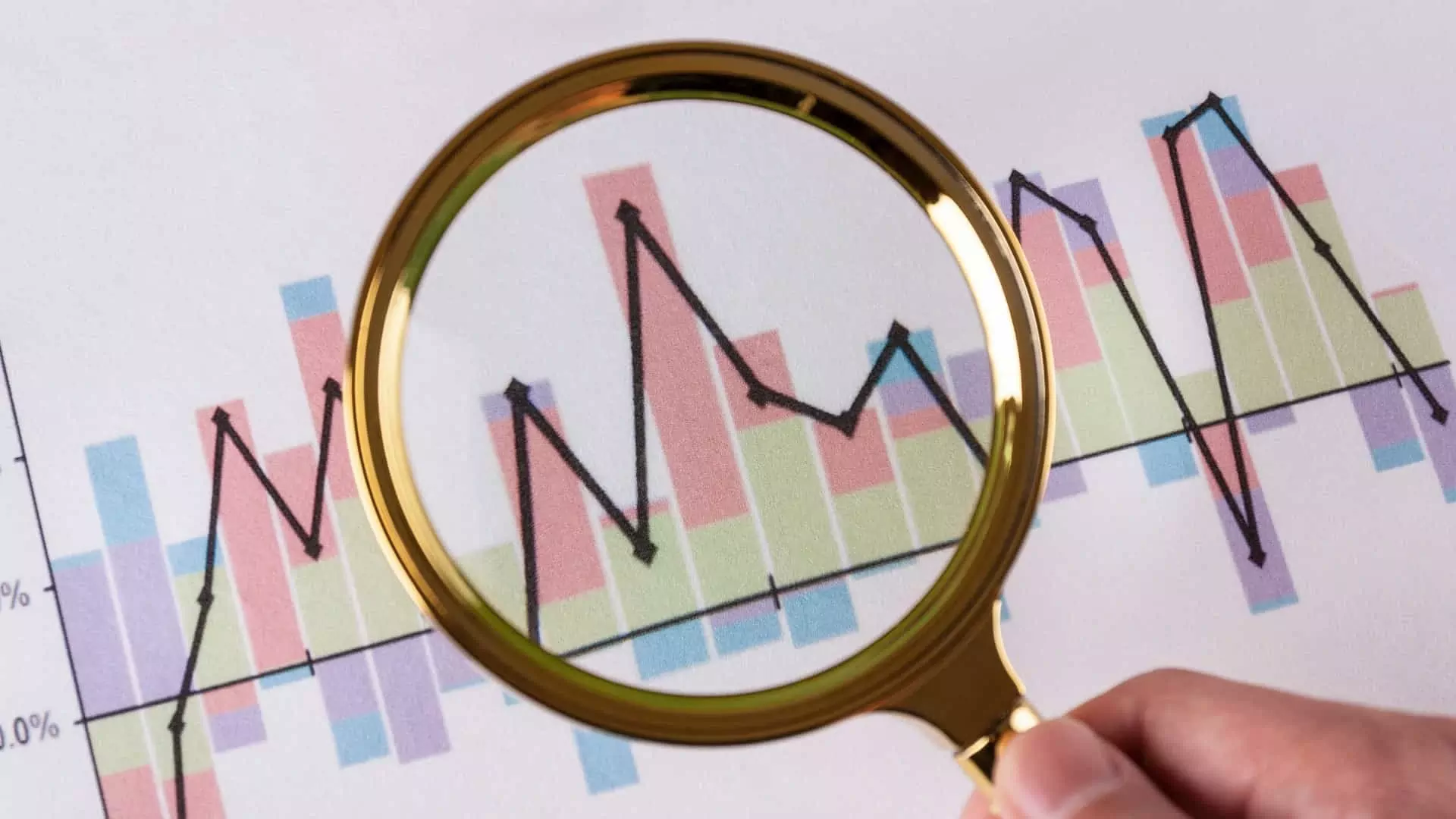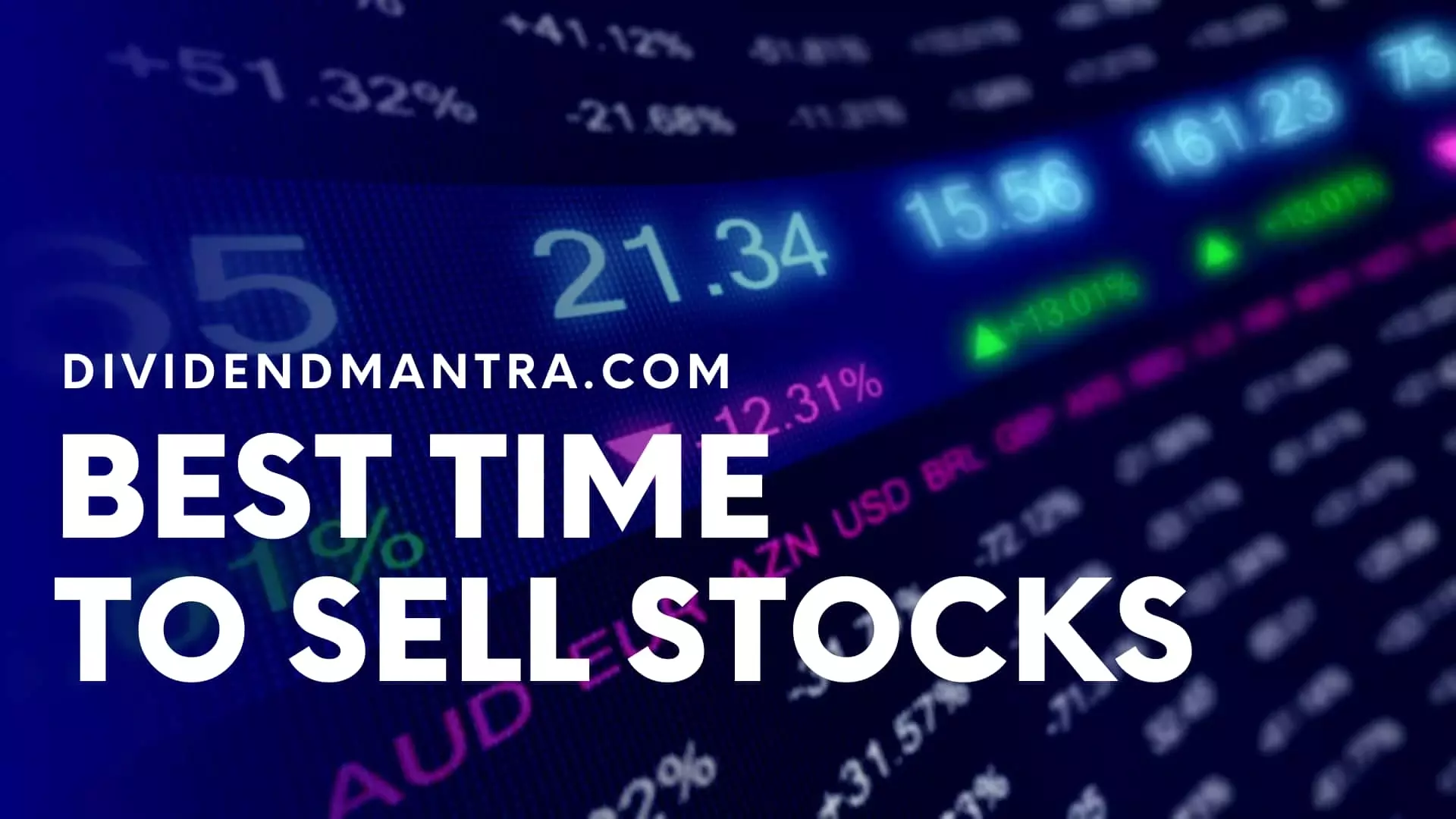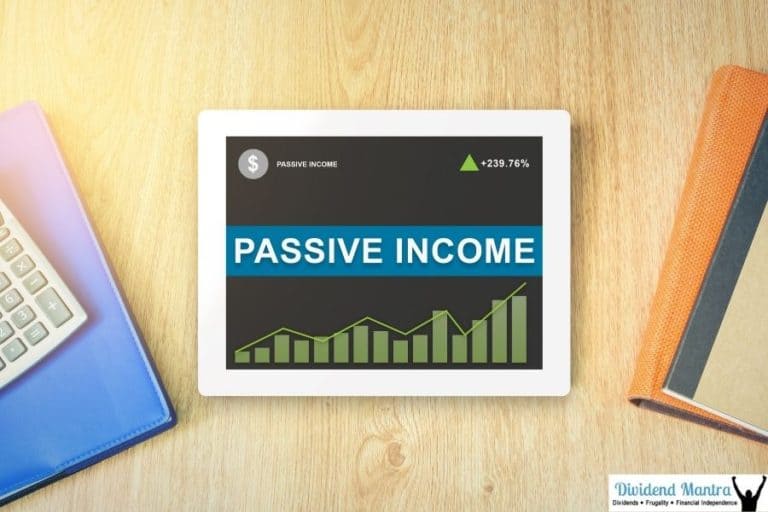The Best Time To Sell Stocks
The stock market is a complex system with many factors that affect prices. While several people may argue that there is no definitive answer when it comes to the best time to sell stocks, selling stocks at the right time can result in higher returns and reduce the risk of losses. Generally speaking, investors tend to sell stocks when the market is down and the outlook for the company is negative. Conversely, they tend to buy stocks when the market is up and the outlook for the company is positive. But, is this the right approach?
In this article, we will show you a few tips to help you determine when it is the best time to sell your stocks. But first, let us show you factors that affect stock prices, and the different reasons why people sell stocks. Once you understand these two, you will be in a better position to understand the stock market and decide the ripe time to sell stocks.
Factors That Affect Stock Prices
The stock market is a complex system with many factors that can affect stock prices. These include:
1. Economic Indicators
There are a number of economic indicators that affect stock prices. These include, but are not limited to, the Consumer Price Index (CPI), the Producer Price Index (PPI), gross domestic product (GDP), and unemployment rates.
The CPI measures the change in the price of a basket of goods and services purchased by consumers. The PPI measures the change in the price of goods and services sold by producers. When these indexes rise, it is typically indicative of increasing inflationary pressures, which can lead to higher interest rates and, ultimately, lower stock prices.

GDP is a measure of a country’s total economic output. A high GDP reading is typically bullish for stocks, as it indicates that the economy is strong and growing. Conversely, a low GDP reading is typically bearish for stocks.
2. Company Performance
The stock market is a reflection of the economy as a whole. When a company does well, its stock prices go up. When a company does poorly, its stock prices go down. This is because investors believe that the company’s future prospects are good when it is doing well and that the company’s future prospects are poor when it is doing poorly.
3. Political Environment
Political environment is one of the most important factors that affect stock prices. The political stability of a country is one of the key factors that investors consider when deciding whether to invest in a company’s stocks. A politically unstable country is more likely to experience economic instability, which could lead to a decline in the stock prices. For example, the stock prices of companies with operations in Venezuela have declined significantly in recent years due to the political and economic instability in that country.
4. Social Factors
The stock market is a reflection of the overall economy. The prices of stocks are determined by the demand and supply of those stocks. The demand for stocks is driven by how people feel about the company and the economy. When people are optimistic, they are more likely to invest in stocks. The supply of stocks is based on how much money companies make and how many shares they have available for sale.
The stock prices are also affected by social factors. For example, when there is a natural disaster, the stock prices of companies that sell products or services related to the disaster will go down. This is because people will be less likely to buy those products or services until the disaster is over. Social media can also affect stock prices. If there is a lot of negative news about a company on social media, the stock price will go down.
5. Global Factors
The stock market is a reflection of the global economy. When global events happen, they often have an immediate impact on stock prices. For example, when the Brexit vote happened, stock prices around the world dropped as investors worried about the future of the global economy.
Global factors that can affect stock prices include economic growth rates, interest rates, inflation rates, and political stability. When these factors change, it can lead to changes in stock prices.
For example, if economic growth slows down in one country, it can lead to a slowdown in stock prices for companies that do business in that country. Similarly, if interest rates rise or inflation increases, it can lead to a decline in stock prices.
6. Market Sentiment
There is a lot of discussion about how market sentiment affects stock prices. Sentiment can be loosely defined as the prevailing attitude of investors towards a particular security or market. In general, when sentiment is positive, stock prices will rise, and when sentiment is negative, stock prices will decline.
Some people believe that sentiment is the most important factor affecting stock prices. Others believe that sentiment is only one factor among many, and that fundamentals such as earnings and dividends are more important. There is no definitive answer to this question.

However, there is evidence that sentiment does have a significant impact on stock prices. For example, a study by researchers at the University of Michigan found that changes in investor sentiment were responsible for up to two-thirds of the variation in stock prices over a period of 10 years.
7. Investor Sentiment
It is no secret that stock prices are directly related to investor sentiment. When investors are feeling confident and optimistic, stock prices will generally rise. However, when investors become fearful or pessimistic, stock prices will usually decline. This is because when investors are confident and optimistic, they are more likely to buy stocks, driving the price up. Conversely, when investors are fearful or pessimistic, they are more likely to sell stocks, driving the price down.
There are a number of factors that can affect investor sentiment, including economic conditions, political events, and company performance. For example, if the economy is doing well and people are getting jobs and earning money, they will be more likely to invest in stocks. Conversely, if the economy is doing poorly and people are losing jobs and money, they will be less likely to invest in stocks. Political events can also affect investor sentiment.
8. Regulatory Environment
Many people believe that the regulatory environment is one of the most important factors that affects a company’s stock prices. Regulations can impact a company’s ability to make money, and can also increase costs. For example, a company that makes environmentally friendly products may have to spend more money on research and development in order to meet government regulations. Additionally, companies with poor safety records may see their stock prices decline as a result of new regulations from the government. Here are the safest stocks you can invest in.
The regulatory environment can also affect a company’s ability to compete in the marketplace. For example, a telecommunications company may be forced to divest some of its businesses after new regulations are introduced. This could give its competitors an advantage in the market. Conversely, a company that is able to comply with new regulations quickly may see its stock prices rise.
9. Industry Trends
Industry trends can have a significant impact on stock prices. For example, when the industry is growing, stock prices typically increase as well. This is because investors are optimistic about the future of the industry and are willing to pay more for stocks in companies that they believe will be successful. Conversely, when the industry is declining, stock prices usually decrease as well. This is because investors are pessimistic about the future of the industry and are unwilling to pay as much for stocks in companies that they believe will be unsuccessful.

It’s important to keep track of industry trends when making investment decisions. By doing so, you can get a better idea of whether or not a particular stock may be worth investing in. Additionally, you can use industry trends to help you determine when it might be a good time to sell your stocks.
10. Technological Developments
The stock market is a representation of the overall health of the economy. It is no secret that technological advancements have a significant impact on the stock market. The question is, how exactly do these advancements affect stock prices?
There are a few ways that technological developments can influence stock prices. One way is through company innovation. When companies innovate, they can increase their profits, which can lead to an increase in the stock price. In addition, when new technologies are developed, it can lead to an increase in demand for certain stocks. For example, if a new technology is developed that requires semiconductors, then the demand for stocks in the semiconductor industry could go up. Finally, when new technologies are released, it can lead to an overall improvement in the economy, which can lead to an increase in the stock market.
The Different Reasons Why People Sell Stocks
There are a variety of reasons why people might choose to sell their stocks. Some people may need to free up cash flow in order to cover other expenses, while others may feel that the stock market is overvalued and would like to take their profits and invest elsewhere. Additionally, some investors may choose to sell stocks in order to rebalance their portfolios, or simply because they no longer have faith in the company’s future prospects.
We have listed all of these reasons below. It is a good idea to take note of what category of investor you are as it will help you make a decision on the best time to sell stocks, discussed in the next subheading, depending on the type of investor that you are.
1. Sell Stocks When the Market Is Bullish
There are a number of reasons why people might sell stocks when the market is bullish. Some people may believe that the market has reached its peak and that it is now time to sell in order to avoid potential losses. Others may be selling in order to take profits after the stock has increased in value. Additionally, some people may be selling because they believe that the market is about to turn bearish and they want to get out before the market drops.
2. Sell Stocks When the Market Is Bearish
When the market is bearish, investors may sell their stocks because they believe that the stock market will continue to decline in value. This may be due to a number of factors, such as a poor economic outlook, high levels of corporate debt, or geopolitical uncertainty. As a result, stock prices may decline further, which could lead more investors to sell their stocks. This could create a downward spiral that could lead to a full-blown market crash.

3. Sell Stocks When the Market Is High
When the market is high, some people might sell their stocks because they believe that the stock prices will go down and they will be able to buy the stocks back at a lower price. Additionally, some people might sell their stocks to take their profits and invest the money into other opportunities.
4. Sell Stocks When the Market Is Low
When the stock market is low, some people may sell their stocks because they believe that the market will not improve and they will lose money. Others may sell their stocks because they need the money for other reasons, such as bills or other investments. Some people may also sell their stocks when the market is low because they believe that they can buy them back at an even lower price and make a profit.
5. Sell Stocks When They Need the Money
People often sell stocks when they need the money. For example, if someone needs to pay for a car repair, they may sell some stocks to raise the money. While stocks are not as liquid as cash, meaning it can take longer to sell a stock than it can to get cash from a bank, selling stocks is a faster way to do so than, say, borrowing money. So, when a person needs to raise cash quickly, they are likely to sell their stocks, sometimes at a lower price than they would normally demand.

6. Sell Stocks When They Don’t Need the Money
The decision to sell stocks when an investor doesn’t need the money may be based on a number of factors. Some investors may choose to sell when they feel the market is overvalued and they don’t want to be invested in a bubble. Others may sell to upgrade their personal financial situation, such as needing to pay for a child’s college tuition. Still others may simply want to take profits after a stock has gone up significantly in value.
7. Sell Stocks To Lock In Profits
The reason people sell stocks to lock in profits is because they want to ensure that they make a profit from the investment. By selling the stock, the person can guarantee themselves a return on their investment, regardless of what happens to the stock price in the future. Additionally, by selling the stock, the person can reduce their risk if the stock price falls in the future.
8. Sell Stocks To Cut Losses
When investors sell stocks to cut losses, they are trying to minimize their financial losses on the investment. This can be done by selling the stock when it has decreased in value and then buying it back after the price has increased again. This technique is often used to try and limit the amount of money that is lost on an investment.
9. Sell Stocks When the Market Is High
When the market is high, people may sell their stocks because they believe that they will not be able to make a profit from them. The high market means that the prices of stocks are already high, so people may believe that it is not worth it to keep their stocks. Additionally, when the market is high, people may sell their stocks because they believe that the stock market will eventually crash.
10. Sell Stocks When the Market Is Low
There can be a number of reasons why people sell stocks when the market is low. Some people may sell because they are worried about the stock market crashing and want to protect their investment. Others may sell because they need to cash in their stocks to cover other expenses. And still others may sell because they believe that the market will continue to go down and they want to get out while they can still make a profit.
11. Sell Stocks When There’s a Recession
There are a few reasons why people might sell stocks during a recession. One reason is that people may become fearful and sell their stocks in order to protect their money. Additionally, some people may believe that the stock market will continue to decline during a recession and choose to sell their stocks in order to avoid any potential losses. Lastly, some people may simply need the money and choose to sell their stocks in order to free up cash.
12. Sell Stocks During a Stock Split
A stock split occurs when a company divides its existing shares of common stock into more shares. The purpose of a stock split is to make the stock more affordable and attractive to investors. When a company splits its stock, it makes each share worth less. So, people who own the stock may sell it to avoid losing money. The company splits its stock because it thinks that the stock is too expensive and that by splitting it, more people will want to buy it.
13. Sell Stocks for Immediate Gains
There are a few reasons why people might sell stocks for immediate gains. One reason is that they may need the money for another purpose, such as to pay bills or to invest in a new venture. Another reason could be that the stock has appreciated significantly in value and the investor wants to take profits before the stock price drops again. In some cases, investors may sell stocks in order to avoid riskier investments, or they may simply want to lock in their profits.
14. Sell Stocks for Tax Purposes
People sell stocks for tax purposes in order to minimize their taxable income. By realizing capital gains on the stocks they sell, they can offset other income they have earned during the year. Additionally, by selling stocks that have increased in value, they can pay less tax on those gains than they would if they sold the stock at a loss.

15. Sell Stocks for Capital Gains
People sell stocks for capital gains because they want to make a profit on the investment. When a person sells a stock, they are taxed on the capital gain, which is the difference between the sale price and the purchase price. The goal of many investors is to sell their stocks for a higher price than they paid for them, which results in a capital gain.
16. Sell Stocks for Reinvestment Purposes
People sell stocks for reinvestment purposes in order to generate a higher return on their investment. By selling stocks and using the proceeds to purchase other stocks that offer a higher rate of return, investors can grow their portfolio more quickly than if they simply held on to the original stock. Additionally, selling stocks allows investors to take advantage of price fluctuations and buy stocks when they are undervalued and sell them when they are overvalued.
17. Sell Stocks for Hedging Your Portfolio
People sell stocks for hedging their portfolios because they want to protect their investments from potential losses. By selling stocks, these investors can create a buffer against market downturns, which can help limit the overall impact of a stock market crash on their portfolios. Additionally, by selling stocks and then buying them back at a later date, investors can lock in any profits they have made and reduce their exposure to risk.
18. Sell Stocks When the Economy Is Doing Well
There are a number of reasons why people might sell stocks when the economy is doing well. One possibility is that they believe that the good economic conditions will not last and they want to take their profits while they can. Another possibility is that they think that the stock market is becoming overvalued and it is time to sell before the bubble bursts. Finally, some people may simply be uncomfortable with having so much money invested in one place and prefer to spread it out among a variety of different investments.
19. Sell Stocks When the Stock Market Is Volatile
There are a variety of reasons why people might sell stocks when the stock market is volatile. Some people might sell because they are worried about losing money if the stock market continues to fall. Others might sell because they need to cash out their investments in order to cover other expenses. Additionally, some people might sell stocks in order to buy other assets that they believe will be more stable in the long run.
20. Sell Stocks When the Fed Is Raising Interest Rates
There are a few reasons why people might sell stocks when the Fed is raising interest rates. One reason is that when interest rates go up, it becomes more expensive to borrow money, and this can lead to a slowdown in economic growth. When the economy is doing poorly, investors might sell stocks because they expect the company’s profits to decline.
21. Sell Stocks When the Economy Is Growing
In most cases, when the economy is growing, people will sell their stocks because they believe that they can make more money in other investments. Additionally, when the economy is doing well, it is usually a sign that the stock market is doing well as well, so stock prices are likely to be higher. Therefore, people may sell their stocks in order to take advantage of this potential increase in value.
22. Sell Stocks When the Market Is Overvalued
People may sell stocks when the market is overvalued for a few reasons. Some people may think that the stock prices have gone up too much and will fall soon, so they sell in order to avoid losing money. Other people may need to cash out their stocks to pay for bills or other expenses, so they sell when the stock is worth more than what they paid for it.
23. Sell Stocks When Earnings Growth Is Slowing
There are a variety of reasons why people might sell stocks when earnings growth is slowing. Perhaps the most obvious reason is that the stock may no longer be a good investment given the slowdown in earnings growth. Another possibility is that the investors may believe that the company’s stock price has already taken into account the slower earnings growth, and so there is no further upside potential.
24. Sell Stocks When the Stock Market Is Hitting New Highs
There are a variety of reasons why people might sell stocks when the stock market is hitting new highs. Some investors may fear that the market has peaked and may be due for a downturn, so they choose to sell now and lock in their profits. Others may believe that stocks are overvalued at current levels and see this as an opportunity to sell and wait for a better price. Additionally, some investors may simply need to cash out their holdings in order to cover other expenses or investments.
25. Sell Stocks on a Downtrend
When the market is in a downtrend, investors tend to sell stocks as they anticipate future losses. This is because, when the market is trending down, it is typically indicative of a bearish trend, in which investors believe that prices will continue to fall. As such, many investors prefer to sell their stocks and wait for the market to rebound before buying back in.
26. Sell Stocks When the Economy Is Weak
When the economy is weak, people tend to sell their stocks because they believe that the stock market will not do well in the future. This is because a weak economy means that there is a higher chance of businesses going bankrupt, which will cause the stock market to go down. Additionally, people may be worried about losing their jobs in a weak economy, and so they may sell their stocks in order to have more money available in case they need to find a new job.
27. Sell Stocks When the Price-Earnings Ratio Is High
The price-earnings (P/E) ratio is a measure of the price of a stock compared to the earnings of that stock. When the P/E ratio is high, it means that the stock is expensive compared to its earnings. This can be a warning sign that the stock might not be a good investment. Some people sell stocks when the P/E ratio is high because they believe that the stock is overpriced and might not be a good investment.
28. Sell Stocks When the Economy Is Strong
When the economy is strong, people tend to sell their stocks because they believe that the stock market will go down and they will lose money. The reason for this is that people tend to be more risk averse when the economy is strong, meaning that they are more likely to sell their stocks and invest in something else that has a lower risk. Additionally, when the economy is strong, unemployment is low and wages are high, meaning that people have more money to invest in other things.
29. Sell Stocks When the Company Is in Financial Trouble
When a company is in financial trouble, it may be forced to sell stocks in order to generate cash. This can happen because the company may be unable to borrow money at reasonable rates, or it may be unable to pay its debts. In either case, the company’s stock price may fall, and this can provide an opportunity for investors who believe that the company will eventually recover to buy the stock at a lower price.
30. Sell Stocks To Invest in a Different Company
When an individual sells a stock, they are essentially exchanging that stock for cash. In order to invest in a different company, the individual must have cash available to invest. By selling the stock and using that cash to invest in another company, the individual is hoping to see a return on their investment that is greater than the return they would have seen if they had simply held on to the stock.
So, When Is the Best Time To Sell Stocks?
1. Understand Your Investment Goals
When it comes to selling stocks, timing is everything. But what is the best time to sell stocks? One answer depends on your investment goals. If you’re looking to maximize your profits, you’ll want to sell when the market is peaking. However, if you’re looking to minimize your losses, you’ll want to sell when the market is tanking.
It’s important to remember that stock prices can go up or down for a number of reasons, so it’s never guaranteed that you’ll get the best return on your investment by selling at a particular time.
Instead, it’s important to carefully consider your investment goals and make sure that any decision to sell stocks is in line with those goals. Only then can you be confident that you’re making the best decision for your financial future.
2. Do Your Homework
It’s important to do your homework before deciding when to sell stocks. Timing is everything in the stock market, and selling at the wrong time can mean a significant loss in profits. There are a few factors you should consider before making your decision:
a) The overall health of the stock market. Is the market trending up or down? Are there any economic indicators that suggest it’s time to sell?
b) Your individual financial situation. How much money do you have invested in stocks? What are your goals for the money? Will selling now jeopardize your ability to reach those goals?
c) The specific stock you’re considering selling. Is it trading near its 52-week high or low? What’s its historical volatility? Has it been paying dividends consistently?
3. Wait for a Good Price
As we have mentioned earlier, when it comes to stocks, timing is everything. Many people believe that the best time to sell stocks is when the market is on an upswing, but this may not always be the case. In order to get the best price for your stocks, you should wait for a good price. This means waiting until the market has stabilized and there is less risk of a downturn.
However, it is also important to consider your individual circumstances. If you need the money from the sale of your stocks in order to meet other financial obligations, then you may need to sell sooner rather than later. But if you’re able to wait, then you’ll likely get a better price by selling when conditions are more favorable.
In short, it’s important to carefully consider all of the factors involved in deciding when to sell your stocks.
4. Consider the Current Economic Environment
It’s important to consider the current economic environment when deciding whether or not to sell stocks. Currently, there are a number of factors that could impact stock prices in the future. For example, the economy is growing at a moderate pace, but there are concerns about a potential slowdown. Additionally, interest rates are rising, and this could lead to investors pulling their money out of stocks and investing in safer options like bonds. Finally, there is political uncertainty due to the upcoming midterm elections. All of these factors could cause stock prices to go up or down in the future, so it’s important to be aware of them when making your decision.
5. Research Historical Trends
The best time to sell stocks may be when the market is high and prices are on the rise. However, this may not always be the case. In order to make an informed decision, it is important to research historical trends and patterns when considering the best time to sell stocks.
There are a number of factors that can affect stock prices, including political and economic conditions. Historical data can help investors anticipate changes in the market and make more informed decisions about when to sell their stocks.
It is also important to remember that stock prices can go up or down for a variety of reasons, so it is never guaranteed that selling at a certain time will result in a profit. However, studying historical trends can help investors make more informed choices about when to sell their stocks.
6. Take Advantage of Seasonality
When you’re thinking about when to sell stocks, it’s important to consider seasonality. Many factors can influence stock prices, but seasonality is one of the most reliable indicators of future performance.
There are certain times of year when stocks tend to do better or worse than others. For example, stocks usually perform well in the spring and summer months, while they tend to do poorly in the fall and winter.
This isn’t always the case, but it’s a good rule of thumb to keep in mind. If you’re looking to sell stocks, it might be wise to do so during the off-season, when stock prices are typically lower.
Of course, there are no guarantees in the stock market, so you should always do your own research before making any decisions.
7. Look at Economic Indicators
When looking at economic indicators to determine the best time to sell stocks, it’s important to consider both short-term and long-term indicators. The most well known short-term indicator is the stock market’s “moving average,” which is a calculation of the average price of a stock over a given period of time. When the moving average crosses above a long-term trend line, it may be time to sell stocks; when it crosses below, it may be time to buy. Other short-term indicators include the “relative strength index” and “price oscillators.”
Long-term indicators include measures such as gross domestic product (GDP), inflation, and unemployment. While these indicators don’t always give clear signals about when to buy or sell stocks, they can provide valuable information about overall economic trends.
8. What Is the Company’s Performance Like?
How well a company is doing can also affect its stock prices. In some cases, it may be better to wait until the company releases its latest earnings report before deciding to sell. This report can give investors a better idea of how the company is performing and whether or not it is still worth investing in. If the company’s stock price has been dropping and there are concerns about its future, then it may be wise to sell now. Keep in mind that no one can predict the stock market with 100% accuracy, so always do your own research before making any decisions.
9. Consider Investor Sentiment
When it comes to timing the stock market, it is important to consider investor sentiment. Often, the best time to sell stocks is when investors are feeling optimistic and the best time to buy stocks is when investors are feeling pessimistic. This is because investor sentiment can often be a leading indicator of future market performance.
For example, in January of 2018, stocks reached record highs as investors were feeling optimistic about the future of the market. However, in February of 2018, stocks began to decline as investors became more pessimistic about the future of the market. This trend continued throughout 2018, with stocks reaching their lowest point in December as investors became increasingly pessimistic.
So, while it’s important to consider a variety of factors when timing the stock market, investor sentiment should be one of your top considerations.
10. Do a Sector Analysis
When you are considering when to sell stocks, it is important to do a sector analysis. Different sectors of the stock market are affected differently by economic conditions and news events. For example, technology stocks may be more volatile than consumer staples stocks, because technology companies are more likely to be affected by changes in the economy and new technologies. By doing a sector analysis, you can identify which sectors are likely to be doing well or poorly and make a decision about whether now is the time to sell your stocks.
You may also do an individual stock analysis: In order to do this, you need to first look at each stock’s fundamentals and its overall market conditions. You should also analyze the stock chart to see if there are any patterns that suggest the stock is about to decline. If all of these factors point to a stock that is likely to decline, then it’s best to sell it before it drops in value. Waiting too long could result in a bigger loss.
Conclusion
In conclusion, it is evident that there is no one “right” time to sell stocks. Factors such as the market’s current condition, an investor’s personal financial situation, and their investment goals will all play a role in when is the best time to sell. While there is no one definitive answer, it is important to carefully consider all of the factors we have listed above before making any decision.







